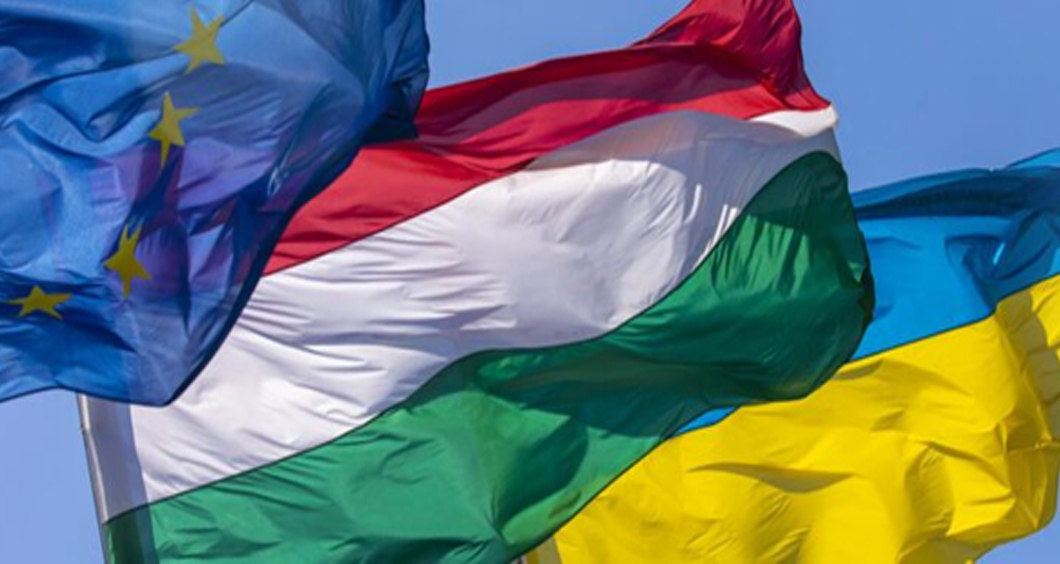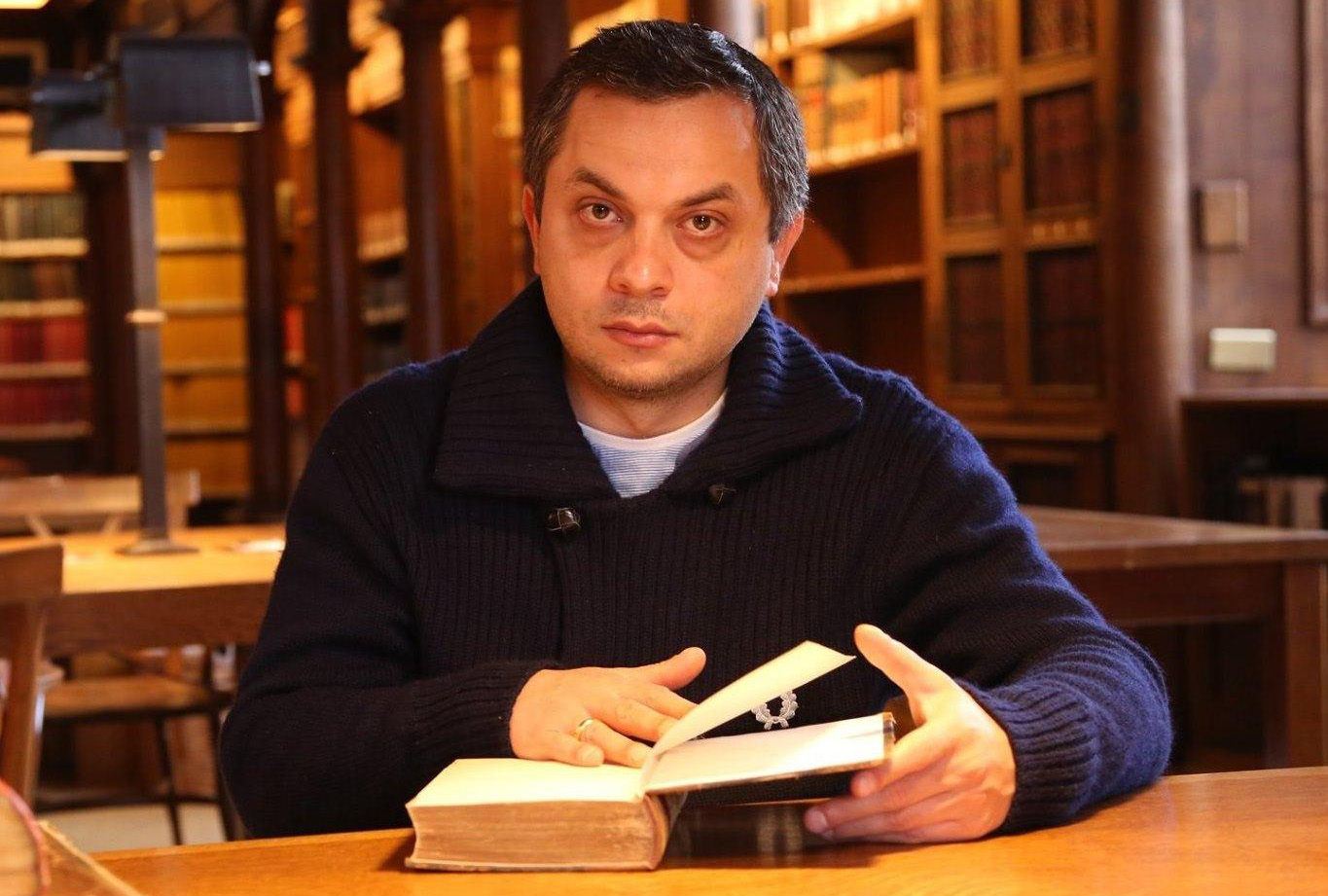
Putin’s Historical Revisionism Using the Example of Georgia: Why Do We Need Civic memory?
Russia’s full-scale intervention into Ukraine late last month and a propaganda narrative employed by the Kremlin in this war have proved to the world yet again that Putin’s regime tries to attain its political goals by revising history – through fabricating real events and replacing them with an alternative, falsified history. “Who controls the past controls the future,” said an English writer, George Orwell, in his famous novel “1984.” Rewriting history enables authoritarian regimes to shore up their legitimacy among population by creating enemy image and to justify their aggressive actions in international politics. It is precisely by revising the history that the Kremlin tries to achieve its political aims in many countries, including in Georgia. A task of falsifying history is much easier to fulfill in countries with weak civic memory. Societies of such countries find it difficult to reach consensus on crucial issues, including on who is the country’s true enemy and who is a true ally. Consequently, the only way to resist the enemy’s propaganda narratives is to reconstitute a fact-based, long-term historic memory and thus, strengthen the national identity. The strengthening of identity is that very key goal that reconstituting civic memory serves to.
Having come to power, the President of Russia got down to the task of revising history at once. As early as in 2005 he declared that “the demise of the Soviet Union was the greatest geopolitical catastrophe of the 20th century.”[1] Influential political scientists believe that since then, Putin has pursued the aim of securing the acknowledgement of former Soviet territories as the exclusive sphere of Kremlin’s influence. However, the consolidation of the post-Soviet space faced substantial difficulties. The former Soviet republics gained their independence in 1991 and the public opinion in some of them, including in Georgia, Western Ukraine and the Baltic States, was strongly anti-Russian.[2] Putin was in need of plausible arguments which the Kremlin would use to justify Russia’s aggressive actions in its “near abroad.” In his historical revisionism Putin pursued two main goals: 1. To erase national identity in post-Soviet countries – the Russian president has repeatedly noted that the majority of former Soviet republics did not have statehood until 1922 (for example, Putin said that the creation of the Kazakh[3] state must be credited to the USSR). In his quest to erase national identity Putin employs the doctrine of Pan-Slavism. In his opinion, Ukrainian and Belarussian nations never existed and Russians, Ukrainians and Belarussians, in reality, constitute one nation having a common ethnic origin and history.[4] Putin believes that Great Russia, Little Russia (Ukraine) and White Russia (Belarus) are part of common Slavic identity and they must have a single political center – Moscow.[5] 2. To establish the principle of Historical Justice – Putin’s regime has made aggressive efforts to reinstate the principle of Historical Justice in international relations that will prevail over the principles of international law. It was precisely the principle of Historical Justice which, in 2014, the Russian President invoked to justify the annexation of Crimea that, in his opinion, “has always been a Russian territory and was unfairly transferred to Ukraine in 1954.”[6] Likewise, the Kremlin deems aggressive actions justified in those territories that had been, first, part of the Tsarist Russia and then, of the USSR.
One of the targets of Putin’s historical revisionism is Georgia. At various times, Putin has made a number of statements aimed to discredit the Georgian state and weaken the Georgian identity. Let us offer one of Putin’s interviews, in an unedited form, which perfectly illustrates the attempt of his regime to rewrite the history. “Ossetia joined the Russian Empire, if I remember correctly, in 1774. Both northern and southern Ossetia came together, as an independent state. Abkhazia did the same in 1810, also as an independent country, a principality. There was no Georgia at the time, but the Tiflis Governorate. After World War I, Georgia made attempts to absorb Abkhazia; an independent country of Georgia was established, and, with help from German troops, it occupied Abkhazia in 1918. The occupiers were very cruel, and Georgian troops in Ossetia in 1919 and 1920 even more so. This was essentially what is called genocide today. The Georgian authorities would do well to remember this. It must not be forgotten, if Georgia’s current government wants to mend relations with the people of Abkhazia or South Ossetia. It wasn’t even Georgia. The Soviet Socialist Republic of Georgia was established during Stalin’s time, and Abkhazia was included.” In the same interview, the President of Russia accused Georgia’s government of starting the war against Ossetians in 2008. “I tried to convince Mr. Saakashvili. I said, ‘Mikheil, do not take any military actions against Abkhazia or South Ossetia.’ I said the same to the Americans: ‘No, under no circumstances.’ And what happened? They started a war. The result? It is well-known today. Russia had to acknowledge the independence of these republics and protect the Abkhazians and the South Ossetians.”[7]
The above cited statements are targeted propaganda narratives which serve the aim to falsify the historical events. Let’s review some of them:
1. The allegation that Ossetia (entirely) joined Russia in 1774 – this narrative is based on two lies: 1. No “South Ossetia” existed in 1774 and the territory which Putin implies under this term was an organic part of the Kingdom of Kartli-Kakheti; 2. This territory was included in the composition of the Russian Empire in 1801, after the Russian Empire annexed the Kingdom of Kartli-Kakheti along with other parts of the Kingdom;
2. The allegation that Abkhazia joined Russia in 1810, as an independent country – this assertion contains two lies. The first is the date. The principality of Abkhazia was the last Georgian territory which Russia managed to forcefully subjugate only in 1864. The second lie is that Abkhazia, until it joined Russia, was an independent state. The principality of Abkhazia was under the influence of the Ottoman Empire from the end of 15th century to 1810, though it was part of the Kingdom of Imereti and fell under the jurisdiction of the Kingdom of Imereti. After the Russian Empire abolished the Kingdom of Imereti, the Abkhazians continued to fight against the Russian occupation for additional 50 years;
3. The allegation that Georgia, with help from German troops, occupied Abkhazia in 1918 – According to this narrative, in 1918, Abkhazia was an independent state and it was occupied by another state, Georgia. This is a patent lie. In reality, Abkhazia was part of Georgia in 1918. In that period, a civil war was fought in Russia between Bolsheviks and the White Army and both these forces tried to fan separatist sentiments in the western and northern parts of Abkhazia. In April 1918, the Bolshevik Army briefly occupied the territory of Abkhazia until May 1918, when the Georgian guard expelled the Bolshevik armed forces from the sovereign territory of Georgia. That Abkhazia was Georgia’s sovereign territory is proved by a treaty signed between the Democratic Republic of Georgia and the Bolshevik Russia on 7 May 1920.[8] According to Article 3 of the treaty, the Bolshevik Russia recognized Georgia’s territory within its historical boundaries, including the district of Sokhumi. That provision, thereafter, made it into the constitution and the district was granted the status of limited autonomy. Consequently, there was no independent Abkhazia in 1918;
4. The allegation that Georgians committed the genocide of Ossetians in 1919 and 1920 – this statement attempts to distort history. In 1919 and 1920, with the help of Bolshevik Russia, a group of Ossetian Bolsheviks in Shida Kartli, which was a sovereign Georgian territory, tried to declare independence, unite with the so-called northern Ossetia and join Russia. The attempts of Ossetian Bolsheviks to provoke revolt and disintegrate the Georgian state with the backing of Bolshevik Russia were quelled by the Democratic Republic of Georgia. Consequently, it was a legitimate action of the Georgian government aimed to defend the territorial integrity of the country;
5. The allegation that the Georgian government started the war in 2008 and Russia was just defending population of Abkhazia and so-called South Ossetia is also a patent lie. The act of war was committed by the Russian Federation which brought Russian military units into the sovereign territory of Georgia via Roki Tunnel on 6 August 2008. According to the narrative spread by the Kremlin, the August war between the Georgian government and Ossetians was a civil conflict and the official Moscow intervened in it to save ethnic Ossetian population from genocide committed by Georgians. The real historical facts, however, speak the opposite. Georgia defended itself against constant attacks from the Kremlin and the Kremlin-led separatists while the August war was a military confrontation between the two states – Georgia and Russia. The aim of the Kremlin in that war was to occupy a sovereign Georgian territory, the Tskhinvali region, with the help of separatists.
An objective analysis of the above-mentioned historical facts exposes methods employed by Putin to fabricate the history of Russia and replace it with alternative, falsified history. The only mechanism of effective protection against the Kremlin’s historical revisionism is to reconstitute civic memory based on impartial, real facts, which will help people consolidate, identify enemy’s strategic aims, tactical objectives and action plans. In such case it is much easier to plan and implement a counterstrategy. A long-term civic memory is a protective shield that helps any state to survive, but the formation of such memory is a long process that requires the involvement of every segment of population in a political and social life of the country.
[1] https://www.nbcnews.com/id/wbna7632057
[2] https://www.geopolitica.info/the-post-soviet-space/
[3] https://www.rferl.org/a/kazakhstan-putin-history-reaction-nation/26565141.html
[4] https://apnews.com/article/entertainment-oliver-stone-europe-russia-ukraine-3fe3ff2299994fae97825381765b831c
[5] https://www.opendemocracy.net/en/odr/little-russia-big-dreams-0/
[6] https://www.nytimes.com/2014/03/19/world/europe/ukraine.html
[7] https://agenda.ge/en/news/2019/1860



